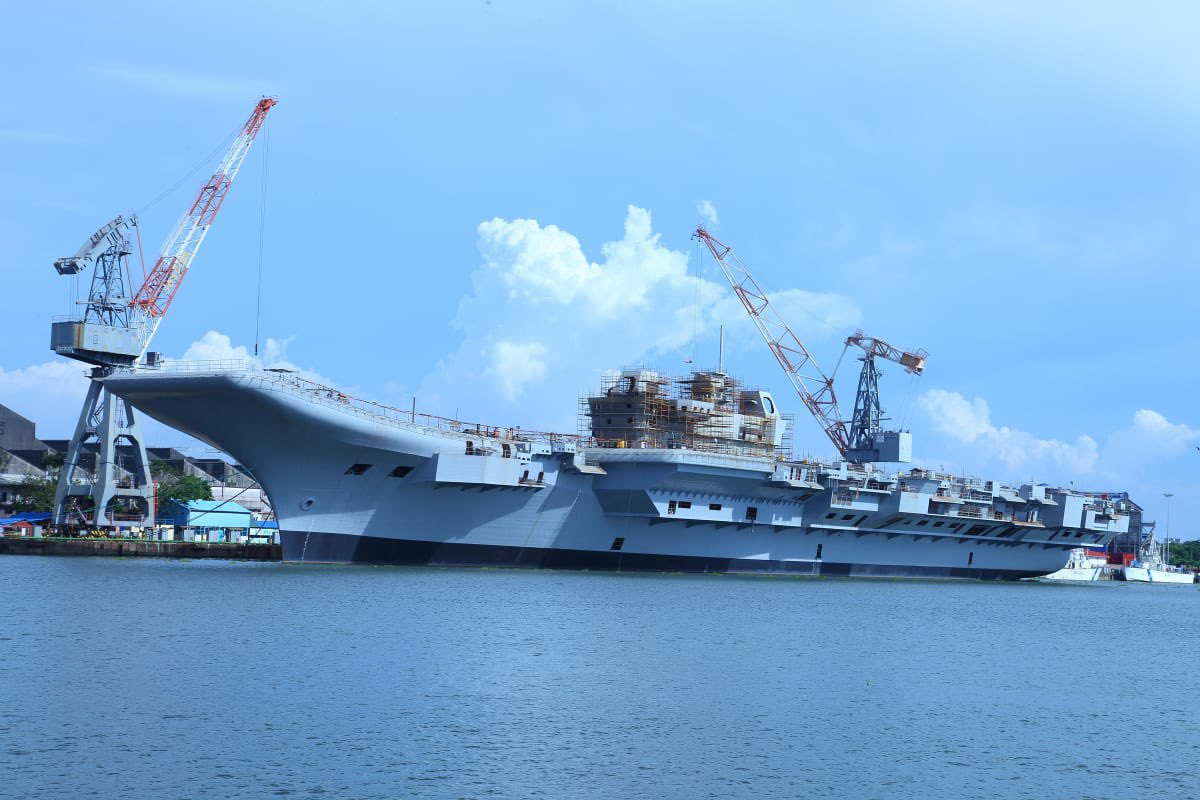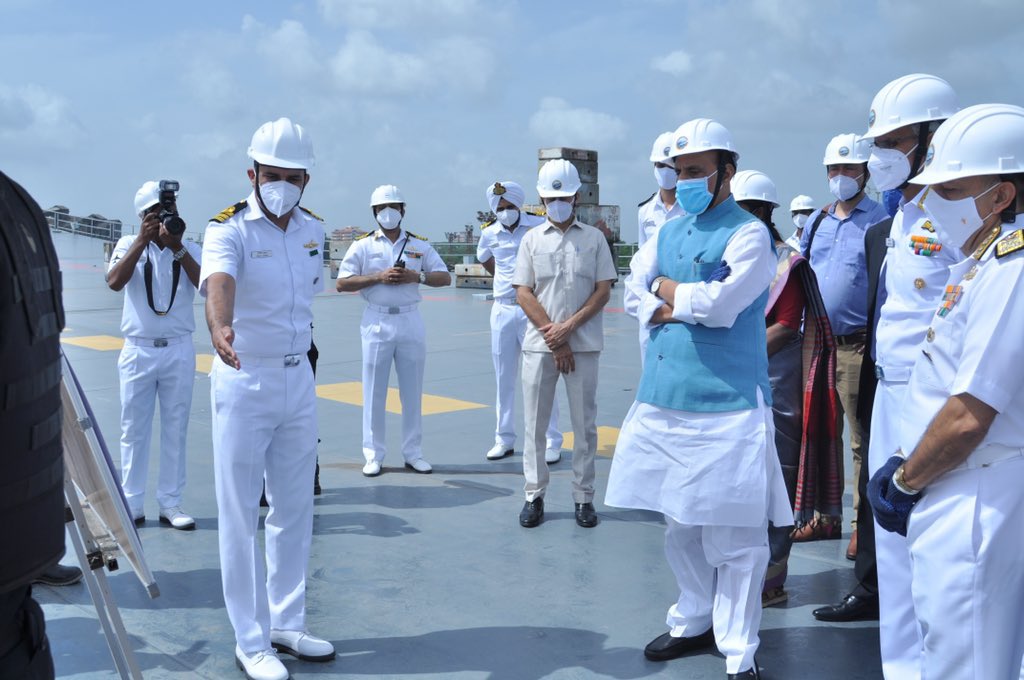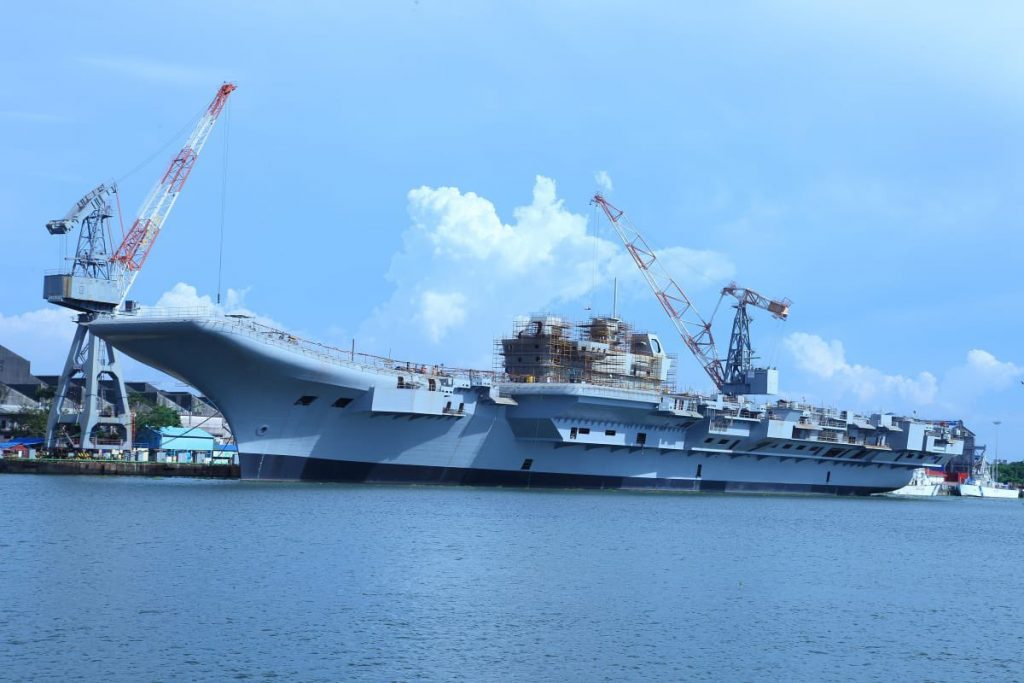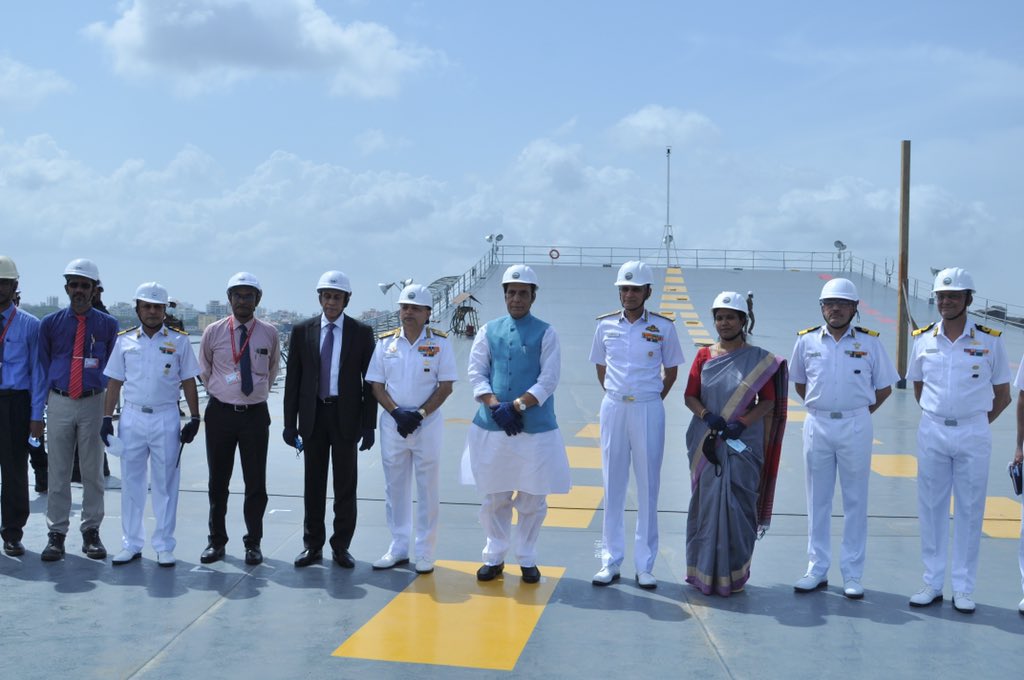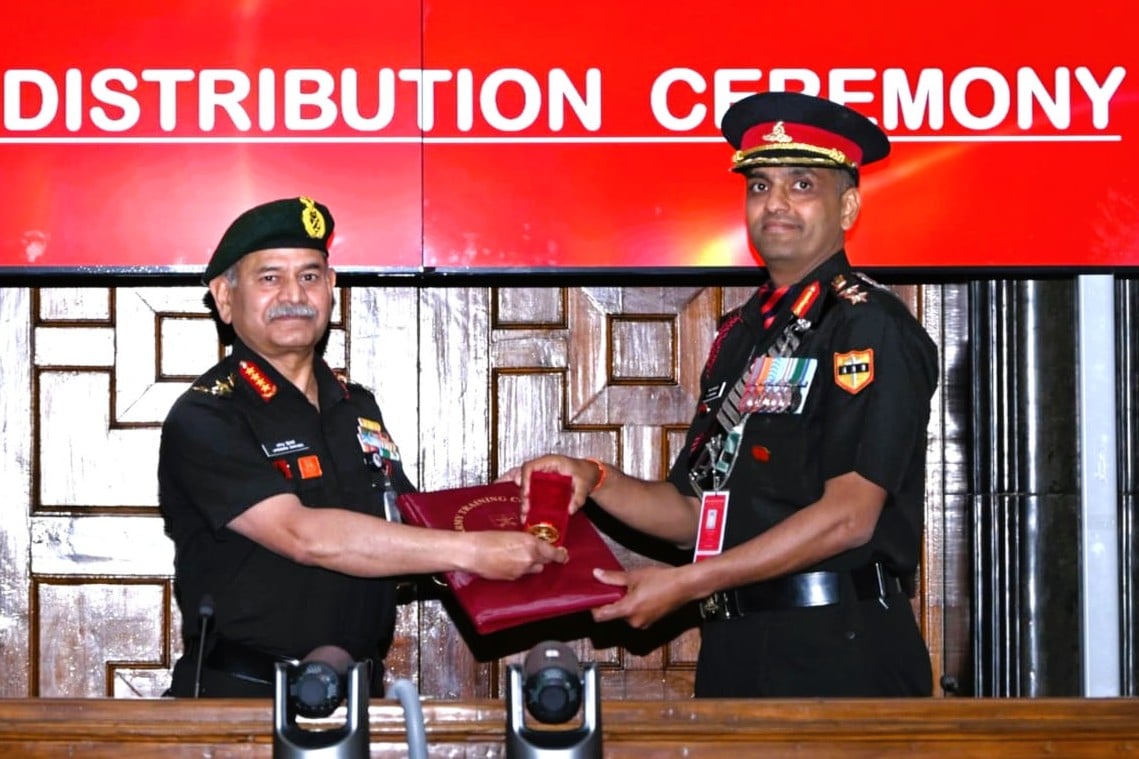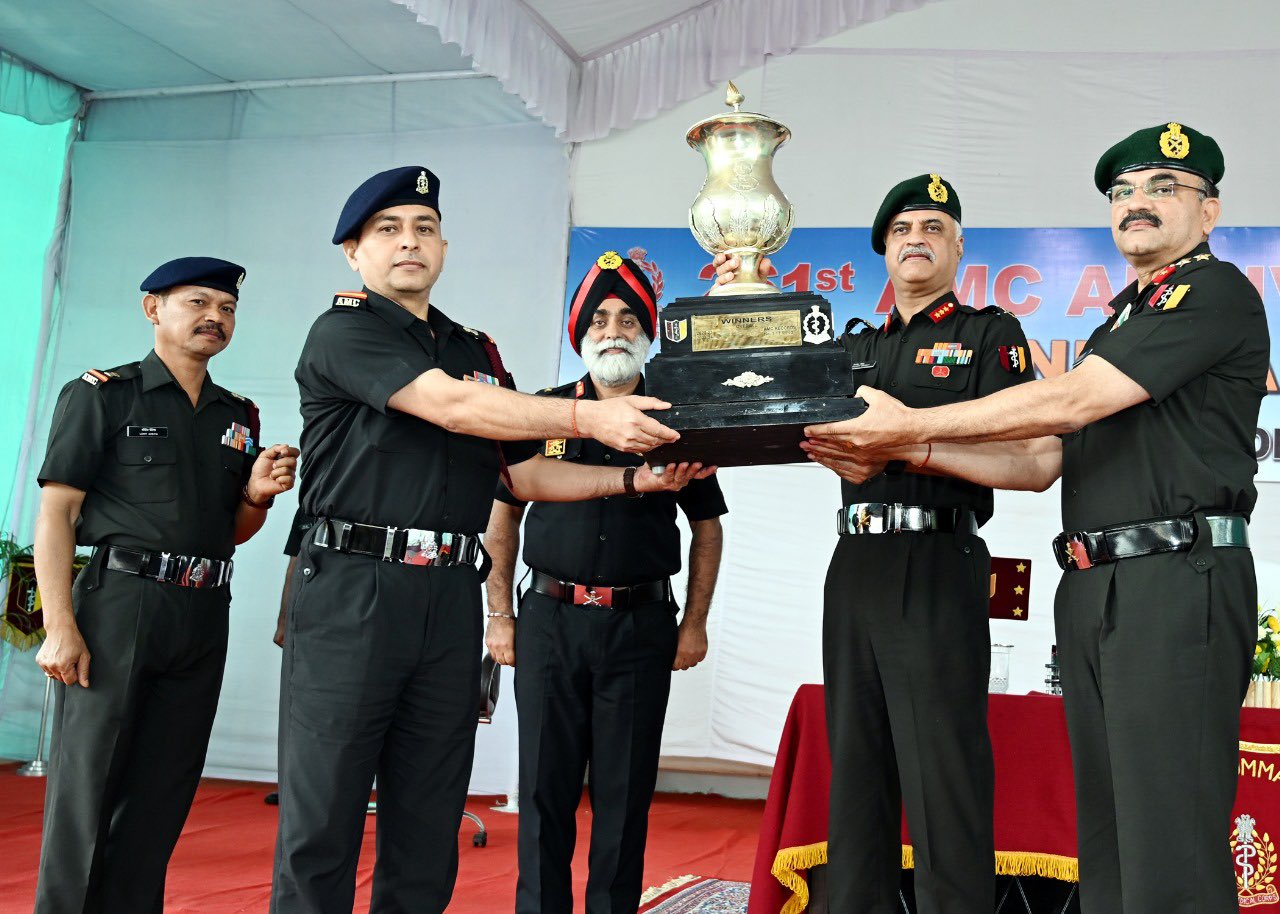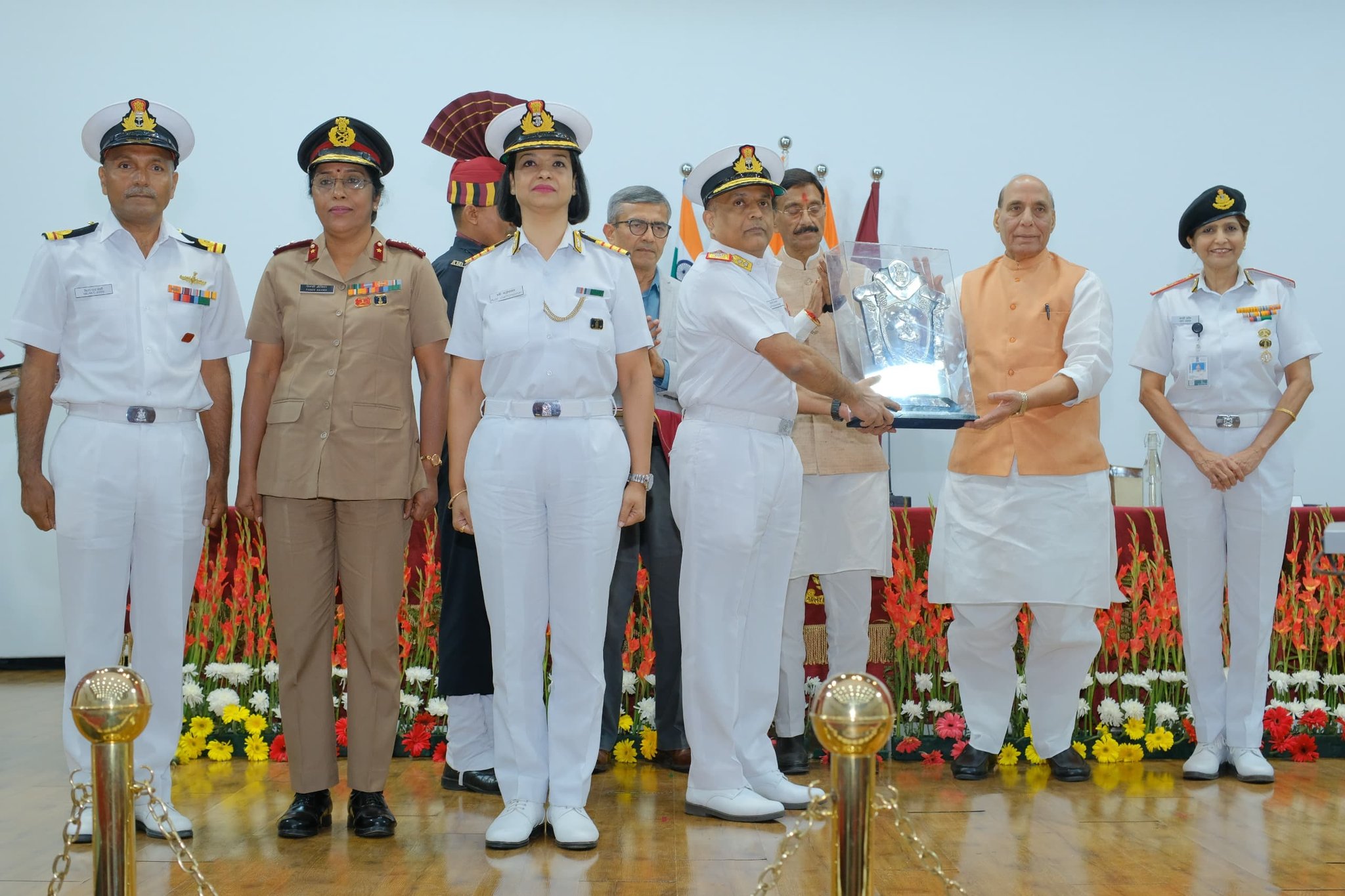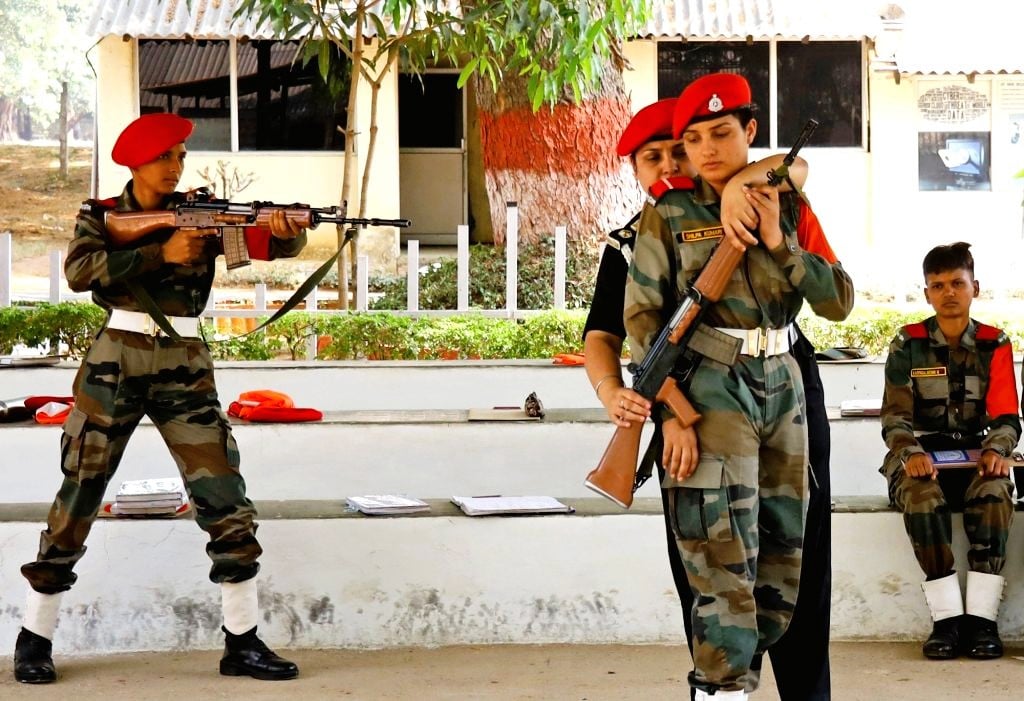India’s first Indigenous Aircraft Carrier (IAC) will be commissioned next year and its combat capability, reach and versatility will add formidable capabilities in the country’s defence, Defence Minister Rajnath Singh said on Friday.
Singh also visited the Cochin Shipyard to review the progress in the construction of the IAC. Terming it a “shining example of Aatmanirbhar Bharat, he said the IAC will be “a befitting tribute to 75 years of India’s independence”.

Highlights of the first Indigenous Aircraft Carrier
The IAC would be commissioned as INS Vikrant in the first half of 2022, which would be the most potent sea-based asset. The ship shall operate MiG-29K fighter aircraft, Kamov-31 Air Early Warning Helicopters, the soon to be inducted MH-60R multi-role helicopter and the indigenously manufactured Advanced Light Helicopters. It would offer an incomparable military instrument with its ability to project Air Power over long distances, including Air Interdiction, Anti-Surface Warfare, offensive and defensive Counter-Air, Airborne Anti-Submarine Warfare and Airborne Early Warning.
The IAC boasts of nearly 75 percent indigenous content, from design to steel used in construction, to key weapons and sensors. Indian Navy’s Directorate of Naval Design (DND) has designed the IAC, which will is being built at Cochin Shipyard Limited (CSL) and will have a displacement of 40,000 tonnes.
IAC, which is 262 metres long and 62 metres wide, will be able to launch 30 aircraft, including 20 fighter jets and 10 helicopters. The ship will be compatible with the MiG-29K and LCA Navy aircraft and will have two runways and a landing strip with STOBAR (short take off but arrested delivery) equipment.
Sea trials will be conducted next month and the IAC is set to be commissioned into the Eastern Naval Command as INS Vikrant by mid-2022. The nearly Rs 24,000-crore project was targeted to be commissioned by 2018, but was hit by delays due to the coronavirus pandemic. The ‘basin trial’ was successfully completed in November 2020.
The carrier will be named INS Vikrant, after India’s first aircraft carrier which was decommissioned in 1997.
History of IAC project
The plans for the ship were floated in 1989, but the design work began in 1999 after then defence minister George Fernandes greenlighted the project. The keel was laid a decade later, the ship was floated out of its dry dock in 2011 and was launched in August 2013.
Why has the project taken a long time to execute
IAC is the most complex warship to have been designed and built in India, Indian Navy sources told The Print. While aircraft and tanks are developed as a prototype first are and replicated after extensive testing of the prototype, warships are designed as they are built and supply chains are defined only at the construction stage.

Why India needs aircraft carriers
The IAC project comes at a time India needs aircraft carriers on the eastern and western seaboards and another in dock. While INS Viraat was decommissioned in 2017, INS Vikramaditya remains the only aircraft carrier in the navy’s fleet.
Other Indian Navy projects in the works
The Indian Navy will get three of the 24 MH-60 helicopters to be delivered by the US Navy in July. The choppers will be provided to India under the Rs 16,000 crore contract inked with the US in February last year.
Work is also on to ramp up the capabilities of the Karwar naval base to make it Asia’s biggest naval base. Under the Project Seabird-2, a 3,000-feet-long runway, hangars for aircraft and docking space for 30 warships will come up at the naval base.
India inducted two American drones Sea Guardian, an unarmed version of the Predator series, into the navy. The drones have been leased from US’ General Atomics
Even though the drones, MQ-9 Guardian/Predator-B, have been leased from an American firm, General Atomics, for a year for surveillance in the Indian Ocean Region, it could also be used in Ladakh, defence sources told The Print.
In April this year, Indian Naval Air Squadron (INAS) 323, the first unit of the indigenously built ALH (Advanced Light Helicopter) Mk III aircraft, was commissioned into the Indian Navy at INS Hansa in Goa. The squadron will operate three ALH Mk III helicopters, which is a multi-role chopper with the Shakti engine manufactured by Hindustan Aeronautics Limited (HAL).
By 7 June, the Indian Navy inducted three indigenously-built advanced light helicopters ALH MK III at INC Dega in Visakhapatnam.
Earlier this month, the Centre also greenlit the Rs 50,000 crore Project-75 India to construct six new-generation stealth submarines.

